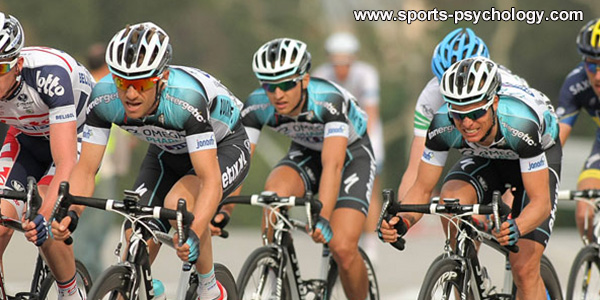Do You Set Yourself Up to Fail in Triathlons?
High expectations rarely result in top results–they actually lead to less confidence.
Of course you want to get better and that means faster times or better finishes. After all, you are training an enormous amount of hours and making tremendous sacrifices. You don’t want your efforts to go for naught.
It is absolutely okay to be ambitions, but high expectations are the downfall for many triathletes. This may sound counter-intuitive but you can improve confidence by having no expectations.
High expectations put the focus on the results of a race and how well you should perform.
When you are focused on the destination, you pull your attention away from the process you need to follow to get to that destination.
For example, you set a goal to shave five minutes off your personal best…
In order to achieve that goal, you have to identify a few things you need to do to accomplish that goal; such as stay relaxed on the swim and fast efficient transitions.
When you focus on the end time, you’re not focusing on your game plan in the swim and in transitions.
Triathletes set themselves up to fail with high expectations. You focus on the need to meet an expectation rather than on the process needed to race their fastest race.
When the expectation is not met, you will feel like you failed and all your efforts are a waste of time.
Goals are good to have as these are milestones to shoot for, not dire needs.
When you focus on the process, the race itself becomes feedback:
Are You on the Right Path to Achieve your Goal?
Do you need to improve a certain aspect of your training or racing?
Mario Mola, World No. 1 triathlete, won four of the nine ITU World Triathlon Series races in 2017 and was crowned world champion. Mola has a mindset that has enabled him to reach the pinnacle of the sport.
As Mola prepares for the start of the season at the ITU World Triathlon Abu Dhabi, Mola is using the race to gauge where he is in his training.
Mola is going into the race with no expectations of achieving a certain result…
Instead, Mola is approaching the race with the mindset that this is just one race of many in the season, a strategy that lessens competitive pressure.
MOLA: “This is the first race after eight months of competitions last year. For me, if the race goes well then it’s good. Otherwise you just keep working through the year because this is a world series. If you can’t win here, there is always another.”
It is important to have goals.
Goals provide direction and motivation.
You DON’T HAVE TO reach your goals…
When it comes to racing, leave those expectations at home and focus on the process of performing your best.
How to Focus on the Process During Races:
Before you even leave your house for the triathlon, ask yourself, “What do I need to focus on that will help me stay in the moment and what strategies do I need to apply to achieve this task?”
Remind yourself of the process during your pre-competition routine to reaffirm what you would like to focus on during the race.
Leave your expectations behind. Don’t get ahead of yourself. Focus on the process, one section of the course at a time.
Related Sports Psychology Articles:
- Staying Focused When Opponents Are Trash Talking
- Do You Underestimate Your Opponents?
- Tips for Slump Busting for Athletes
Free Mental Toughness Reports

Get instant access to a mental game report to improve your mental toughness. Are you making one or more of these “deadly” mental game mistakes prior to competition? You can improve your mental game with one of our free sports-specific reports below.
with our free mental toughness reports, you’ll:
- Discover if you have positive or negative pregame jitters.
- Identify your pre-competition mental game mistakes.
- Learn the important pregame mental skills to boost your performance and success!
Learn how mental game strategies can boost your mental toughness in sports with Dr. Cohn’s free mental game reports!

